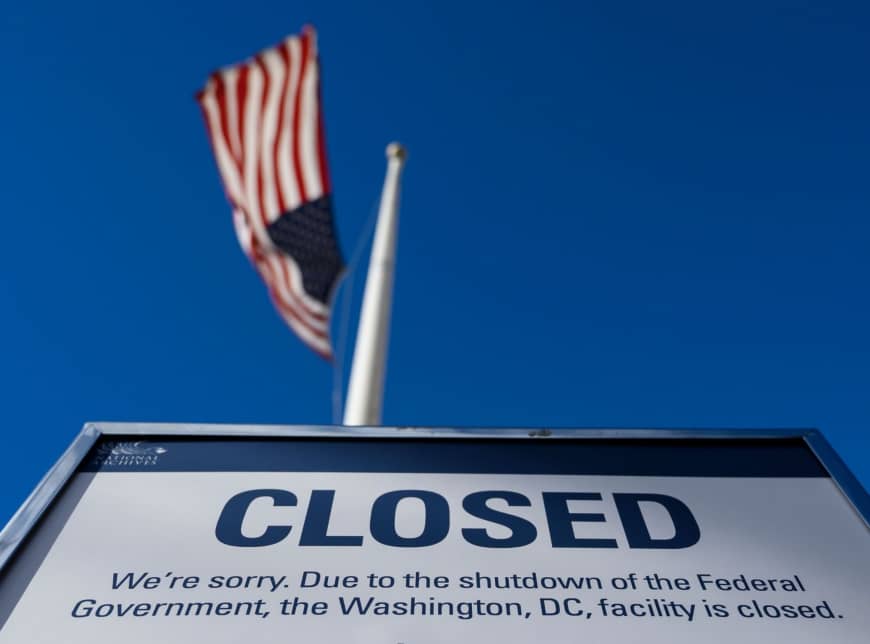The five-week government shutdown subtracted $11 billion from the U.S. economy, about twice the amount President Donald Trump sought to fund a border wall, an independent congressional body said Monday.
However, all but $3 billion, or 0.02 percent of Gross Domestic Product, will eventually be recovered as the government resumes operations, the non-partisan Congressional Budget Office said in a report.
The partial shutdown, the longest in US history, left some 800,000 federal workers either working without pay or furloughed although they are due to receive back pay this week.
But government contractors, including hourly workers, may not be compensated for lost income.
Why This Matters
The estimate suggested the damages from the political brawl in Washington were significant but stopped short of the far worse harm that could have occurred had it been allowed to continue.
“Underlying those effects on the overall economy are much more significant effects on individual businesses and workers,” the report said.
“Some of those private-sector entities will never recoup that lost income.”
Growth in subsequent quarters this year should see a small, temporary bounce, compensating for the losses in the final quarter of 2018 and the start of 2019, the report said.
With public services including aviation safety beginning to buckle under the strain of withheld wages and suspended operations, Trump agreed Friday to reopen the federal government temporarily but with no additional funding for the wall.
In a signature pledge from his 2016 campaign, Trump claimed the barrier would stem illegal immigration and drug trafficking, a claim Democrats have rejected.
The shutdown underscored the myriad but frequently unseen ways that the federal government greases the wheels of the economy: farm subsidies, mortgage approvals, tax refunds, permits for oil drilling, food safety inspections, all were temporarily interrupted.
And the CBO report said its estimate did not reflect indirect costs which were difficult to quantify but which were “probably becoming more significant” as the government freeze went on.
The halt to permits and government loan approval was “probably beginning to lead firms to postpone investment and hiring decisions.”
Airports in Miami and New York operated at reduced capacity causing some flights to be grounded due shortages of air traffic controllers and transportation safety agents, bringing home the direct threat to normal commerce as the shutdown dragged on.
What’s Next
Trump was widely seen as having lost the standoff with congressional Democrats as polling showed most voters blamed the president for the impasse while hard-right commentators accused him of capitulation.
Funding for the government is due to run out by mid-February and Trump told The Wall Street Journal on Sunday the odds were below 50 percent that lawmakers would reach a deal on border security he would find acceptable.
The president has threatened to use emergency powers to build the wall if he does not get his way with Congress. However, observers say this would likely face immediate legal challenges.


